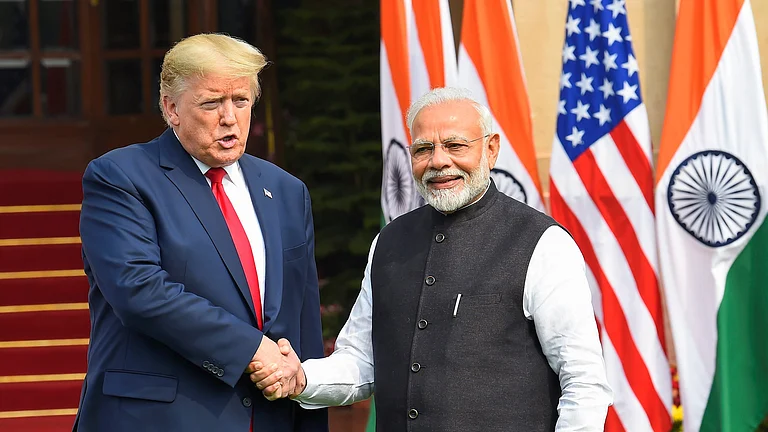Former President Donald Trump made a historic appearance Monday as he arrived at a New York court for the commencement of jury selection in his hush money trial, marking an unprecedented moment in American history. This trial stands as the first criminal proceeding against any former U.S. commander-in-chief and the inaugural one of Trump's four indictments to proceed to trial.
With Trump simultaneously holding the status of the presumptive nominee for the Republican ticket in this year's election, the trial presents a unique spectacle of a presidential candidate spending his days in court while campaigning during the night, as he has asserted.
Before jury selection kicks off, legal arguments and procedural matters may be addressed. Once underway, a substantial number of individuals are expected to be summoned into the courtroom to initiate the process of selecting 12 jurors, along with six alternates.
Judge Juan M. Merchan underscored the pivotal importance of ensuring that prospective jurors can set aside personal biases and render decisions based solely on evidence and the law.
Trump has entered a plea of not guilty to 34 felony counts of falsifying business records. Prosecutors allege that he sought to conceal an effort to suppress potentially damaging stories about his personal life from surfacing during his 2016 presidential campaign.
Central to the charges are payments totalling $130,000 made by Trump's company to his former lawyer, Michael Cohen. These payments were purportedly made to prevent adult film actress Stormy Daniels from publicly disclosing her claims of a past sexual encounter with Trump, which he denies. Prosecutors contend that these payments were falsely recorded as legal fees to disguise their true purpose, a claim Trump's legal team refutes.
Trump frames the case, along with his other indictments, as a broader "weaponization of law enforcement" orchestrated by Democratic prosecutors to hinder his political aspirations.
After years of navigating legal battles, Trump now faces a trial that could potentially result in a prison sentence of up to four years if convicted, although the possibility of a non-custodial sentence remains.
The trial of a former president and current candidate holds extraordinary significance for the American political landscape and for Trump himself, representing a scenario that would have once been deemed unimaginable.
Outside the courtroom, a spectacle is anticipated, reminiscent of previous incidents when skirmishes between Trump supporters and protesters erupted during his arraignment last year.
Despite efforts by Trump's legal team to dismiss or delay the trial, appeals have been unsuccessful. Among their arguments is the contention that the jury pool in Manhattan, predominantly Democratic, has been tainted by negative publicity surrounding Trump. However, Manhattan prosecutors argue that fair and impartial jurors can indeed be found among the borough's vast adult population.
The jury selection process will begin with potential jurors filing into Merchan's courtroom, identified only by number to maintain anonymity. Those who express an inability to serve or be impartial will be excused, while the remainder will undergo questioning, including inquiries about their views on Trump and related issues.
Based on their responses, attorneys can request the removal of jurors for cause or exercise peremptory challenges to eliminate prospective jurors without providing a reason, although the judge has cautioned against striking individuals solely based on political affiliations.




























